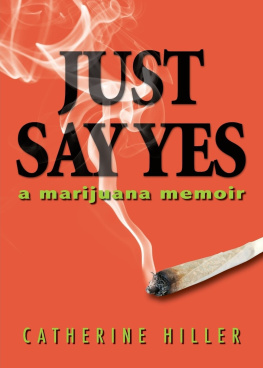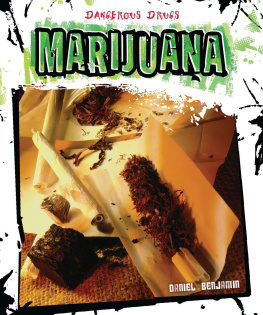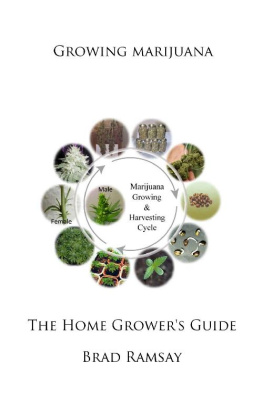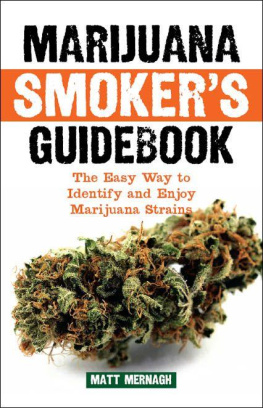A version of Chapter 1 was first published in the New York Times March 22, 2015.
A version of Chapter 26 was first published in the essay anthology Woodstock
Revisited, edited by Susan Reynolds (Adams Media, 2009).
Copyright 2015 Catherine Hiller
All rights reserved. No part of this book may be reproduced or transmitted in any form or by any means, electronic or mechanical, including photocopying, recording or by an information storage or retrieval system now known or heretoafter inventedexcept by a reviewer who may quote brief passages in a review to be printed in a magazine or newspaperwithout permission in writing from the publisher: heliotropebooks@gmail.com
Cover design by Judy Tipton-Katzman
Typeset by Naomi Rosenblatt
I have for many months hesitated about the propriety of allowing this, or any part of my narrative, to come before the public eye and it is not without an anxious review of the reasons, for and against this step, that I have, at last, concluded on taking it.
A writer without controversy is not a good one. A book without controversy is not a good one, either.
The Buy
Ephraims place is a few blocks above 96 th Street on the East Side, where the neighborhood is rundown but not dangerous. Theres no intercom in the building, so to open the downstairs door, you have to have your own key. Ephraim doesnt take phone calls on either landline or cell. Ephraim doesnt use the internet. Ephraim stays under the radar.
Ephraim is 63, with curly gray hair that he wears in a thick ponytail. He has regular hours and regular customers. He accepts new clients reluctantly, and only if they are the good friends or adult children of his existing customers. Ephraim is honest, good-natured and very, very careful.
Ephraim is an important person in my life. He is my dealer. Ephraim has been dealing grass, and only grass, from this one location for 35 years. He has been my personal supplier for almost that long. I go down to his place every couple of months, but some of his customers visit twice a week. These must be lower-level dealers. My standard purchase of an ounce or two is dwarfed by what the others are buying.
Ephraim provides a valued service to us all.
To keep squeaky clean, Ephraim has a really boring day job so he can show taxable income to the IRS. Hes had this job for decades, although he must clear a quarter of a million a year dealing grass. I arrive at this figure based on estimated client volume, average buy and a 40 percent mark-up.
Anyway, Ephraim is certainly doing well. And doing good.
Its easy to park in Ephraims neighborhood, so I always drive down from Westchester, with a novel on audio. On this Monday night, I park right across the street from his building. His downstairs door is painted a bright, acrylic yellow. I insert my key and turn the lock. The door opens smartly upon the dirtiest hallway I have ever seen. The white hexagonal tiles have not been washed in decades. Crumpled wrappers and unidentifiable filth have been ground into the grime. As always, I breathe through my mouth, between my teeth.
The stairway is no better. The brown linoleum is broken and littered with cigarette butts. The walls are covered with graffiti, and there are five flights of stairs. Most of Ephraims customers are in late middle age, and I wonder how much
longer well be able to make it up these stairs. I picture us
coming up in knee braces, gripping the banisters, panting.
I get to his floor without pausing or gasping, but my heart is definitely going fast, and I rest a moment to catch my breath. Then I push his doorbell.
Its one of those bells that gives no indication about whether or not it works. Theres no buzz and theres no light, so sometimes when I dont hear movement inside, I press the bell again, certain that it hasnt worked the first time. This gets Ephraim annoyed, so tonight I just wait. And yes, I do hear noises now: the click of the peephole opening, the clunk of the floor lock-bar being moved. The door opens, and he beckons me in, finger to lips Ephraim insists on silence at his door. He doesnt want his neighbors to be aware of the many visitors he gets Monday to Thursday between eight and ten pm. He calls these his office hours, and this hovel is his office. He lives elsewhere with his wife and three children, now young adults.
I follow him down the long corridor of this cramped apartment. How are you? he asks in his friendly, nasal voice.
We have to go sideways down the hall because of the bicycle. (This will pose a problem when his clients start using walkers.) We get to the studio and its 1969, with posters, books and vinyl record albums from that era. Three old hippie-types sprawl on two ancient couches. The small room has been partitioned into two areas. Theres the outer area, where customers wait for Ephraims attentions. And through an open doorway theres the inner area, where Ephraim sits at a desk, underneath a loft bed, weighing the goods. When you first get in there with him, its like entering a cave.
I nod to the others, a weathered lot, all of us. Ive seen one of the guys here before Hank, I think and the others look vaguely familiar. Friends of Ephraim. We should have a club. We should throw him a party.
Ephraim says, Come on in, Hank, and they go into the inner area. The rest of us make small talk. Theres always a festive atmosphere at Ephraims. Martha, with the long gray hair, is an artist who lives in Williamsburg. Richard, who is bald, teaches music at a junior high school. I inject a note of politics into the chitchat, certain that they share my leftie views, which they do.
Hank is in the inner area with Ephraim for ten minutes. He gets four ounces of Mex and two ounces of sensi. He emerges into the outer area and puts his purchases into a backpack. He shakes hands with Richard, nods to Martha and me and says to Ephraim, See you Thursday.
A dealer for sure.
Its Richards turn. Richard wants half a pound of hydroponic, which Ephraim gets by coming into the outer area and opening a small refrigerator with no shelves in its interior. At any time, Ephraim has between ten and twenty pounds of pot from five or six locales, and he keeps it in large plastic bags in a dormitory refrigerator. He takes out one of the bags and closes the refrigerator door. Ephraim reaches into the bag and draws out a branchlet of marijuana. He shows it to Martha. Pretty, she croons. The buds are red and sticky with resin. Ephraim goes back into the inner area with Richard.












